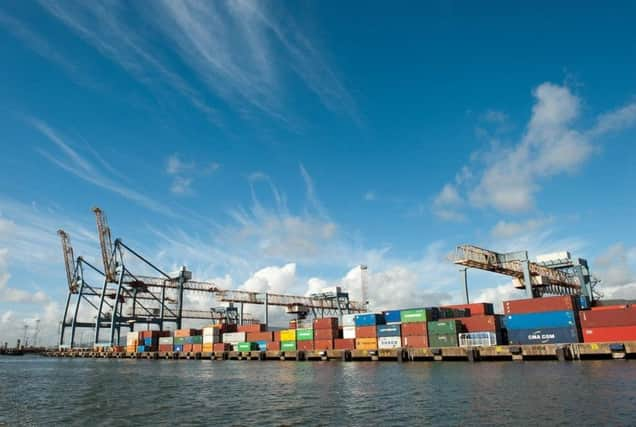Business activity up, but new orders slow to five-month low


However the March data in the Ulster Bank Northern Ireland PMI report also carries a warning that uncertainty and higher costs lie ahead.
The latest report - produced for Ulster Bank by Markit - indicates that a solid rise in business activity ended a positive first quarter of the year, though inflation remained elevated as a result of sterling weakness.
Advertisement
Hide AdAdvertisement
Hide Ad“Nine months on from the UK’s vote to leave the EU, Northern Ireland’s private sector has maintained its growth momentum as it enters the second quarter of 2017,” said Richard Ramsey, chief economist for Northern Ireland with the Ulster Bank.
“Overall, the local economy has perhaps fared better than expected post the Brexit decision, with the main impact, positive and negative, so far being the weakening of sterling. But the long-term economic implications will only become apparent as what Brexit actually means becomes clear.”
At present, he said all segments of the private sector such as manufacturing, retail, services, and construction were maintaining growth in output and employment to varying degrees, with job creation rising for the 26th month in a row.
“Again, inflationary pressures are very prevalent, with the effects of sterling’s weakness continuing to feed through into firms’ input costs, and the prices they charge to customers,” he said.
Advertisement
Hide AdAdvertisement
Hide Ad“Retail and manufacturing input cost inflation eased from record highs, but remain very elevated.
“Meanwhile construction and services firms saw their cost-base accelerate - the latter to a 70-month high.
“Whilst the negative effects of the weak sterling are very apparent in the latest data, so are the positives, with exports continuing to grow strongly, albeit at a slower rate, and cross-border shopping boosting retail.”
Maintaining export growth in the months ahead would help the private sector’s continued expansion, he added, but a key concern remained the dependence on retail sector growth in an environment of rising prices and pressure on consumers’ pockets.
Advertisement
Hide AdAdvertisement
Hide Ad“Retail prices are rising at almost a record rate, with further rises in food and energy prices set to filter through in the coming months,” he said.
“Alongside a freeze in a range of benefits to 2020, this will firmly consign the consumer sweet spot to the past.
“But consumers are not alone, with businesses set to face additional taxes and costs, such as the increase in the National Living Wage and the Apprenticeship Levy.”